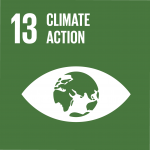The way forward for agriculture sector development and adaptation planning in Viet Nam in light of COVID-19 impacts

Written by Giang Huong Phan and Janto S. Hess of UNDP Viet Nam.
Ha Noi, 11 December 2020 – Despite Viet Nam’s success in both agriculture sector adaptation planning and stopping the spread of the COVID-19 virus, the economic impacts of the pandemic are negatively affecting farmers and, thus, decrease their climate change resilience. According to a recent survey, 65 percent of 1,335 sampled people (71 percent of agriculture-dependent people), experience a decrease in income due to the epidemic (MDRI & UNDP, 2020). Other research has, further, shown that supply chains are disrupted and changing demand patterns led, in some cases, to the abondance of fields/yields as the profits would not outweigh the costs involved for the harvest. This shows that Viet Nam needs to strengthen the resilience of farmers and international support to cope with the losses of COVID-19 and climate change.
The information was shared at the International Support Group’s (ISG) 2020 Plenary Meeting with the theme: "Viet Nam's agriculture and rural development in the context of COVID-19 impacts: Opportunities and challenges", which was co-organized by Ministry of Agriculture and Rural Development (MARD), in cooperation with the United Nations Development Program (UNDP), and the International Agricultural Development Fund (IFAD). The ISG is a high-level event informing the country’s agriculture sectors’ policy development, planning, and budgeting processes. The 2020 Plenary Meeting was attended by nearly 200 delegates representing embassies in Hanoi, multilateral and bilateral partners, international organizations, international trade agencies (in agriculture), non-governmental organizations, the domestic private sector, and government partners.
Caitlin Wiesen, UNDP Resident Representative in Viet Nam, who co-chaired the meeting together with the Deputy Minister of MARD, Le Quoc Doanh, highlighted that "COVID-19 and climate change can be turned into opportunities to transform the agriculture sector, optimize and scale nature-based solutions to increase climate ambitions to implement the targets of the Paris Agreement.” She further added that “it is important for agriculture businesses and farmers to be prepared for the multiple risks of climate extremes and COVID-19. Viet Nam has a track record of introducing agricultural insurance as one of the key risk transfer mechanisms. Under the National Agriculture Insurance Pilot Program (NAIPP), for example, the Pilot Insurance Program covered over 300,000 households in 20 provinces focusing on rice, livestock, and aquaculture insurance. UNDP is currently cooperating with MARD in further strengthening the risk-transfer schemes, expanding options for farmers, SMEs and businesses to effectively cope with future losses and shocks.”
Economically safeguarding communities will be an important aspect to strengthen the resilience of agriculture-based rural societies, which are particularly affected by COVID-19 implications. Studies observed in some instances reverse-remittance flows, meaning that households in rural areas started sending money to their relatives in cities or abroad, which, further, marginalizes those households. With an in-flow of remittances from Vietnamese migrant workers contributing to 6.4% of the GDP in 2019, many rural communities were likely recipients of remittances prior to the pandemic.
The event highlighted the importance to elevate ambitions and introduce innovative actions in the field of climate change, while integrating concepts of resilience and sustainability into COVID-19 recovery efforts – to build forward better to a Green and Resilient Viet Nam. There is a need to significantly boost public and private partnership, increase investments in adaptation, and build resilience, while taking ambitious steps to reduce carbon emissions as part of the country’s recovery programming.
As a trusted partner of MARD, the NAP-Ag programme, provides support to update Viet Nam’s Roadmap for Adaptation Planning in Agriculture Sectors to reflect changed post-covid realities in its sectoral adaptation planning processes. The key insights gained during this ‘re-planning’ process will soon be published in the form of a NAP-Ag policy brief.
